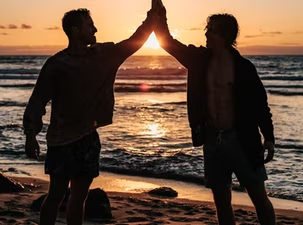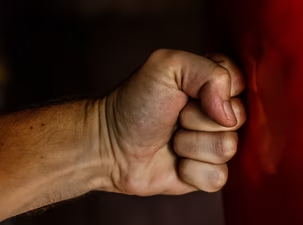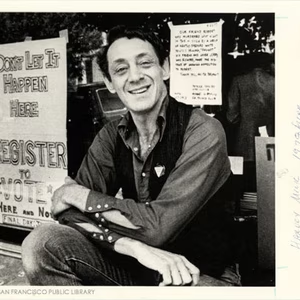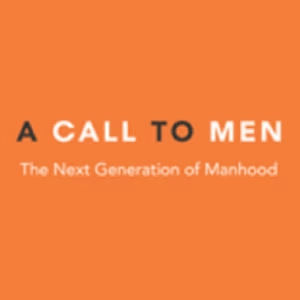
Men
Comprehensive resource on global men’s issues including men's health, the men’s movement, mental health, fathers and sons, homosexuality, gay rights, the impact of war, and positive masculinity.

➡️ Men’s Issues & Modern Masculinity
Traditionally, the male role in society centred around providing, leading, and protecting. As a result, male success has often been unfairly associated with strength and financial prowess.
These measures place enormous pressure and stress on men at the expense of other healthier factors, such as being a present member of the family, the ability to express emotions, and engagement in society.
Jump straight to our resources on ➡️ Men
Explore our comprehensive guides on -
-
Men and Violence, War, and Toxic Masculinity
Our goal is to reframe the traditional male narrative, end harmful cultures such as toxic masculinity, and go beyond the stereotypes of men and violence. Men's health urgently needs to be prioritised, health screenings normalised, and communicating emotions and concerns destigmatised.
Men are much less likely than women to report symptoms to a healthcare provider. The mortality rate for 8 out of 10 leading causes of death is significantly higher for men, including heart disease, cancer, stroke, and diabetes. The pressures of modern society and the tendency for men to trivialise the importance of mental health have resulted in male suicide rates 4 times higher than in females. With only one in five men seeking professional help regarding feelings of depression, suicide is now a leading cause of death for men aged under 50.
“It takes more courage to reveal insecurities than to hide them, more strength to relate to people than to dominate them, more ‘manhood’ to abide by thought-out principles rather than blind reflex. Toughness is in the soul and spirit, not in muscles and an immature mind” – Alex Karras
German speakers should visit our partner site Bessere Welt Info for over 600 links on Mäenner.
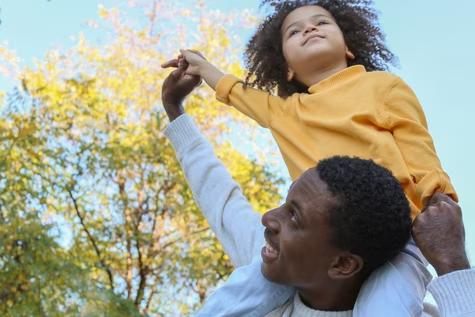
The Changing Role of Men in Society & Family
As gender equality becomes more normalised and stereotypes blur, traditional gender roles have overlapped and, in some cases, even switched. For example, male nurses, kindergarten teachers, and hairdressers are now commonplace. No longer seen as just the breadwinner, the male role has transformed into a more multifaceted and fulfilling one.
Open-mindedness and modern mindsets have allowed traditional gendered personality traits, occupations, and domestic duties to be distributed more evenly. Men have to adapt to new expectations of masculinity and roles within the family. These traits include respect, empathy, communication skills, emotional intelligence, supportiveness, and vulnerability.
Discover a modern perspective on relationships, love and sexuality, singles and online dating, and how to maintain a healthy work-life balance. Our comprehensive guide to fatherhood includes essential information on stay-at-home fathers, paternity leave, paternal rights, and raising boys not to be boys but to be good humans.
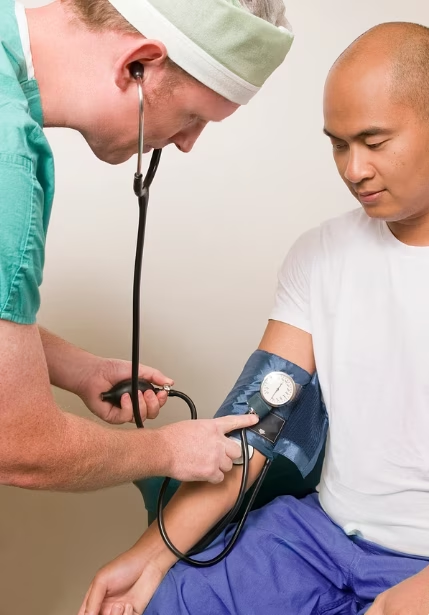
Ending the Men’s Health Crisis
Huge stigmas exist around male health care. Men remain reluctant to visit professionals for regular check-ups and continue to ignore the signs of stress, poor lifestyles, diet, and excessive alcohol consumption.
In general, men are more likely to be in poor health than women. They also have a lower life expectancy. The leading cause of death in men is heart disease, the risks of which are seriously worsened by poor health, obesity, physical inactivity, smoking, and diabetes.
Men are at considerably higher risk than women for certain health issues. The facts speak for themselves:
-
Middle-aged men in the UK are twice as likely to have diabetes than women – and also twice as likely to not know that they have it.
-
More than half of middle-aged men in the U.S. have high blood pressure.
-
Premature deaths from heart disease in men account for 75% of total deaths.
-
Prostate cancer in the UK is the second most deadly cancer for men, despite being highly survivable if caught early.
Breaking gender stereotypes, supporting and encouraging regular screenings, normalising men's health in conversation, prioritising emotional health, creating a network of supportive friends, and engaging in hobbies and physical exercise can all go a long way to end the male health crisis.
Explore more information on men's health including resources on men living with disabilities, the men's rights movement, self-help, men's research, and much more.

Gay Rights - From Silence to Celebration
The fight for gay liberation began in the 1920s, marking the beginning of the gay civil rights movement and the shift towards equality for the LGBTQI+ community. Homosexuality was once incorrectly considered a form of illness but now is celebrated annually around the world in pride parades, marches, memorials, and concerts.
The U.S. recorded its first gay marriage in 1971, and same-sex marriage is now legal in 38 countries. Hate crimes against homosexuals in many states became punishable by law, discrimination policies and equality laws have been adapted to include sexual orientation, and a huge shift in attitudes has created a much more open-minded and accepting society regarding members of the gay community.
Despite these huge milestones, gay rights are still violated every day around the world. Homosexuality is still criminalised in 64 countries, and there are 11 countries where same-sex relations are punishable by death. Conversion therapy is still practised in many parts of the world, even in parts of the U.S. Russia is just one example of a country where members of the LGBTQI+ community face significant challenges. The majority of Russians hold strong views against homosexuality and support laws which actively discriminate against them.
Hate crime is a huge cause for concern. Two-thirds of the LGBTQI+ community have been the victim of anti-gay violence or abuse. With a quarter of the world's population still believing that same-sex relations should be a crime, much progress is still needed to eliminate discrimination in the workplace, in healthcare, education, and in general day-to-day life.
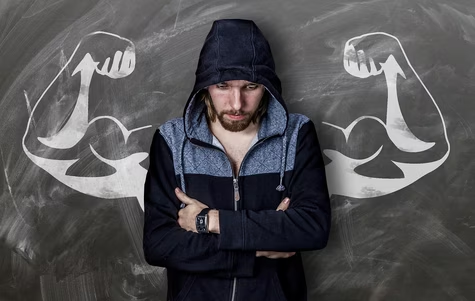
Challenging Toxic Masculinity - Redefining Strength
Harmful male stereotypes create toxic masculinity. It fosters a culture of dominance, aggression, misogyny, and homophobia. These extreme masculine traits are damaging to men, women, and society overall.
Young men who conform to patriarchal notions of manhood are much more likely to not only harm others around them, but to harm themselves as well. It is a well-documented risk factor in domestic violence, male-to-male violence, sexism, sexual assault, and male privilege.
New expectations of modern masculinity have redefined what it means to be masculine. Ideas of masculinity are evolving from men who were once defined by their salary and the size of their biceps to men who are able to care, communicate, express emotion, and connect with others.
Positive masculinity demands an end to the ‘boys don’t cry’ culture. Being told to ‘man up’ no longer means suppressing your emotions and appearing tough. Education plays an essential role in raising boys to be respectful, well-rounded, and feminist. Breaking stigmas, challenging traditional gender roles, diversifying social circles, and providing opportunities for men to heal go a long way to breaking the cycle.
Modern masculinity can be supported by:
-
Finding nonviolent solutions to conflict
-
Encouraging men to express emotions
-
Fostering a culture of kindness and compassion
-
Active listening to male experiences and feelings
-
Checking in on male friends and loved ones
A healthier and more balanced sense of masculinity that allows men to be more connected with their emotions improves self-esteem, satisfaction with life, and relationships, in turn lowering the risk of mental health problems.
Social movements and awareness campaigns such as #MeToo and various high-profile femicides have forced society to seriously reexamine how we deal with the highly damaging effects of toxic masculinity and the risks to society as a whole.
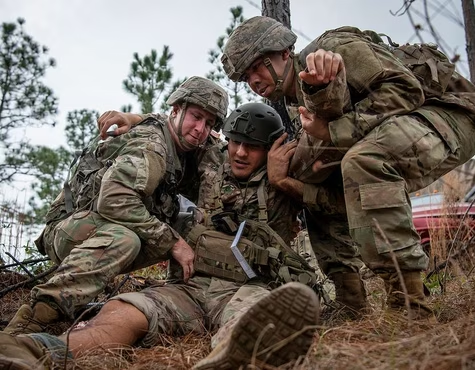
War, Violence, & Masculinity
Men and violence have unfortunately gone hand in hand for generations. Not only are men more likely to be victims of violent crime than women, but they are also taught that expressing frustration through violence is acceptable. Men can feel that violent behaviour makes them worthy of respect and is often revered by their peers and society.
Many social, biological, and environmental factors impact male behaviour. Cross-cultural statistics have shown that there is a clear sex difference between the way men and women display aggression. Men are far more likely to express it through physical violence and verbal abuse. As a result, men are significantly overrepresented in violent crime statistics.
Once overlooked issues, domestic violence and sexual assaults among men are finally being taken more seriously. Embarrassment, shame, and lack of support from law enforcement have led to a culture of silence among male victims. One in three victims of domestic abuse is male. However, only 5% of the victims being assisted by local authorities in the UK are male, most likely as more than 50% of men fail to tell anyone at all that they are suffering.
In our military category, we highlight the longstanding connection between men and war. Apart from a handful of exceptions, throughout history, war has been waged almost exclusively by men. Globally, close to 80,000 soldiers die due to fighting in armed conflicts every year. Unsurprisingly, this figure is overwhelmingly men.
Why do so many men risk their lives? It could be that young men are seeking purpose, to prove themselves, or that they see enlistment as a rite of passage. Vulnerable men are targeted by states, even in high schools, where they are sold an attractive financial package which requires few skills and offers comprehensive training. Many young men are enamoured with weapons and war, and the media feeds this notion by portraying soldiers as heroes.
Soldiers have become victims of the military-industrial complex. They are used as pawns for governments to reach their ultimate goals of power, hegemony, and political and financial gain. Military service is now the most common cause of PTSD in men. Of the American soldiers who served in Afghanistan and Iraq, as many as 30% developed the disorder.
Almost two-thirds of U.S. veterans who fought in Iraq and Afghanistan state that the war was not worth fighting when weighing up the costs versus the benefits. Organisations such as Veterans for Peace support soldiers with PTSD, injuries, and other issues. They raise awareness of the true costs of militarism and war and instead fight for peaceful and effective solutions to conflict.
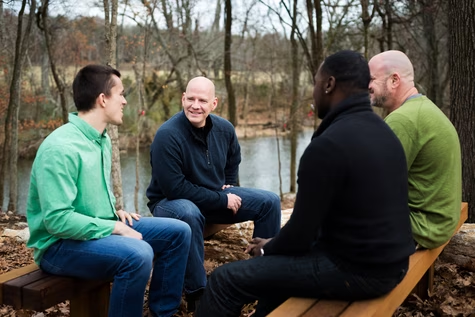
Challenging Gender Norms – The Men of Tomorrow
We imagine a world where manliness is measured by the ability to express feelings and solve problems without violence, where gender norms are malleable, and where men are encouraged to embrace their feminine side.
Strength can be redefined, and what it means to be a ‘real man’ is changing for the better. Men should have the freedom to express diverse notions of masculinity without being restricted to toxic stereotypes.
Toxic masculinity is slowly being replaced by healthy masculinity.
Equality and mutual respect are the basis for harmonious coexistence. We strive for a society where men and women have equal opportunities in society, family life, education, work, politics, and all other areas. Together, we can realize this vision of a just, peaceful, and equal future for everyone regardless of their gender, sexual orientation, social standing, skin colour, religion, age, or any other factor which may alienate an individual or group.
“All of us have to recognise that being a man is first and foremost being a good human. That means being responsible, working hard, being kind, respectful, compassionate. If you’re confident about your strength, you don’t need to show me by putting somebody else down. Show me by lifting somebody else up” - Barack Obama
Better World Info is an open platform – We invite experts, NGOs, campaigners, and activists to contribute their knowledge and top resources! We are a constantly expanding, work-in-progress, committed to spreading reliable, critical, and investigative resources to help create an informed, knowledgeable, and curious world.
Author: Rachael Mellor, 21.12.23 (Updated 21.04.25) licensed under CC BY-SA 4.0
For further reading on Men see below ⬇️
Info on Men
- Magazines 20
- Love & Sexuality 61
- Men's Movement 45
- Men & Violence 113
- Men & Health 55
- Fathers
- Boys & Sons
- Homosexuality & Gay Rights 268
- Handicapped Men 28
- Men, War & Peace 43
- Men Research 7
- Toxic Masculinity 69
- Links 2
